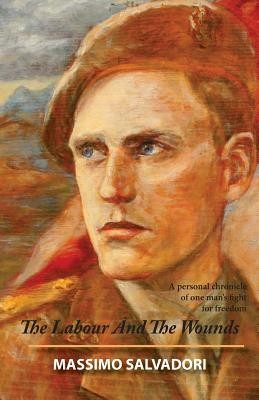
- We will send in 10–14 business days.
- Publisher: Trovatello Press
- ISBN-10: 0990645940
- ISBN-13: 9780990645948
- Format: 14 x 21.6 x 1.8 cm, softcover
- Language: English
- SAVE -10% with code: EXTRA
The Labour and the Wounds (e-book) (used book) | bookbook.eu
Reviews
Description
Although man has an inherent capacity for freedom, the concept of liberty and the institutions through which that concept becomes the practice of free societies, are the result not of laws of nature but of conscious creative efforts. What man creates, man can also lose. Those who are convinced that liberty is good and necessary have no right to sit back and let things go when free institutions are threatened. This, man's conscious struggle for freedom, is the thread connecting the episodes in this book. But why write about one individual's small part in the conflict between despotism and liberty? Why an autobiography mostly in the third person? Who cares what happened to an unknown man, or what he did? We should not forget that behind masses and their movements are always individuals, their experiences and their actions. One life reflects thousands or millions of lives. Historians and philosophers write about liberty, but it is through the actions of individuals that ideas become the practice of everyday life. In many countries there would be no liberty today had there not been hundreds of thousands of people whose efforts translated the idea of liberty into free institutions. That is why the book was written. Having endured beatings from Mussolini's fascists, twice exiled from his home in Italy, and political imprisonment, Max forges ahead in his quest to end Italian fascism by joining underground movements and, when war breaks out, enlisting in the British army's Special Operations Executive (SOE) and commissioned to operate in Italy both overtly in uniform as well as covertly behind enemy lines. His first-hand experiences lend credence to "one man can make a difference."
EXTRA 10 % discount with code: EXTRA
The promotion ends in 17d.11:18:52
The discount code is valid when purchasing from 10 €. Discounts do not stack.
- Publisher: Trovatello Press
- ISBN-10: 0990645940
- ISBN-13: 9780990645948
- Format: 14 x 21.6 x 1.8 cm, softcover
- Language: English English
Although man has an inherent capacity for freedom, the concept of liberty and the institutions through which that concept becomes the practice of free societies, are the result not of laws of nature but of conscious creative efforts. What man creates, man can also lose. Those who are convinced that liberty is good and necessary have no right to sit back and let things go when free institutions are threatened. This, man's conscious struggle for freedom, is the thread connecting the episodes in this book. But why write about one individual's small part in the conflict between despotism and liberty? Why an autobiography mostly in the third person? Who cares what happened to an unknown man, or what he did? We should not forget that behind masses and their movements are always individuals, their experiences and their actions. One life reflects thousands or millions of lives. Historians and philosophers write about liberty, but it is through the actions of individuals that ideas become the practice of everyday life. In many countries there would be no liberty today had there not been hundreds of thousands of people whose efforts translated the idea of liberty into free institutions. That is why the book was written. Having endured beatings from Mussolini's fascists, twice exiled from his home in Italy, and political imprisonment, Max forges ahead in his quest to end Italian fascism by joining underground movements and, when war breaks out, enlisting in the British army's Special Operations Executive (SOE) and commissioned to operate in Italy both overtly in uniform as well as covertly behind enemy lines. His first-hand experiences lend credence to "one man can make a difference."


Reviews